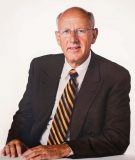by Cynthia Weifenbach, contributing writer
The grocery industry has been at the forefront of feeding Northern California communities and doing its best to provide safe environments throughout the COVID-19 pandemic. Yet, not unlike other areas of the country, there are differences even within the region, such as San Francisco Bay and Sacramento.

“We have these patches,” said Ron Fong, president and CEO of the California Grocers Association. “The greater San Francisco Bay and coastal communities tend to be more environmentally friendly and protective than other areas.
“People…are more apt to reuse bags, containers, cups, bowls, etc. when buying product. They are buying bulk with reusable containers. Consumers are hyper-vigilant on being environmentally friendly.”
Mill Valley-based Mollie Stone’s Markets operates a small chain of grocery stores in the San Francisco Bay area. President and CEO Mike Stone said the pandemic has forced the company to reinvent certain store sections.
“Other departments have excelled, yet deli has struggled,” Stone explained. “The self-serve salad and hot food bars were shut down. We shifted our fresh foods to more packaged fresh products, but the consumers don’t always realize that it is fresh. We are working on ways to improve this and differentiate ourselves.”
Turning east, Fong described the area around the state capital of Sacramento as “more liberal and more similar to the Bay Area” than other parts of the region. “Farther north in California – when looking at Redding, Cottonwood and other cities near the Oregon border – the communities are more traditional and conservative in their viewpoints. They regularly shop the independents more so than chains. They are less trendy and more conservative.
“People are very loyal to their local independent markets that they have shopped in for generations – for example, North State Grocery and Holiday Markets.”
Back in the Bay Area, Mollie Stone’s has announced it will be opening its largest store in the heart of San Francisco Bay toward the end of 2021.
“We are in the process of planning the store to best fit the neighborhood,” Stone said. “The neighborhood didn’t want a formula retail chain store. They wanted a local independent store.”
Added Fong, “To show you how strong independents are in Northern California – not that they aren’t elsewhere, but they have a very strong presence up here – the neighborhood banded together and insisted that an independent store go into that box. That suggests the independents have a strong influence up here.”
Looking ahead, Stone foresees the pandemic resulting in a tough economy for the next couple of years.
“It will be hard for businesses to adapt to the new world. It’s a whole new gyration. Restaurants are limited in what they can do. As they attempt to reopen, they are facing day one, where we as grocers faced day one when the pandemic hit.
“We have been through our trial and errors as we worked to protect our employees and customers while providing needed products. I’ve made more decisions in the past four to five months than I have in the last five years. We’ve been open and dealing with this.”
Grocers and other businesses are adapting to the fact that more people are working from home.

“As a result, there will be more office space open and available. Restaurants won’t have the breakfast, coffee or lunch business,” Stone said. “Social events like conventions, sports and concerts will be affected and may be cancelled entirely.
“The topography has changed drastically in the past four to six months. We are being approached by many areas as space is opening up due to closures. We have to look for the right model and communities.”
Fong was appointed by Gov. Newsome to serve on his bi-partisan Task Force on Business and Jobs Recovery, which has been helping plan the state’s economic recovery. He said the group has detected a lack of understanding from the public. Moving forward, psychological thought patterns must change.
“When things were opened up again and people went out, they didn’t take precautions,” he said. “The numbers are proving this, and COVID cases are high again. Speaking for the Fong family, we are staying home and cooking at home. The retailers are a safe, proven viable option. They have done a great job serving our communities.”
The grocery business, Stone said, is based on quality and service in a safe environment. “Our customers are loyal to us. Prior to COVID, delivery was a small percentage of our business, at about 5 percent. Now it is up to about 20 percent. Shopping patterns have changed with less frequency and bigger baskets when they do shop.”
How the state legislature conducts business also has shifted.
“[The CGA] used to be able to go in and lobby to various committees on different subjects,” Fong said. “Now we can’t. The Capitol is closed. There is no ‘face time.’ Everything is by phone or Zoom calls. It is challenging to influence decisions in this manner.”
Fong did, however, commend the association’s members for their “remarkable job serving the communities and working with the state government.” He cited an executive order that Newsome signed in April to provide up to 80 hours of supplemental paid sick leave to specified food-sector workers.
“We [CGA] volunteered to do that,” Fong said. “We wrote a law that allows employees who contract COVID to get paid for two weeks.”
Stone said the full ramifications of the pandemic likely won’t be known for years. “I’ve been in this business for 50 years, and it has never been more challenging. It’s hard to forecast. An event like this will sustain for a long time.”
He went on to note that the pandemic could have long-lasting effects similar to those of the Great Depression.
“It has changed how we shop, socialize, communicate and our very workplace. Figuring it all out is our biggest challenge,” Stone said. “Our greatest accomplishment has been our dedication to the health and safety of our employees and customers. That outshines all else.”

